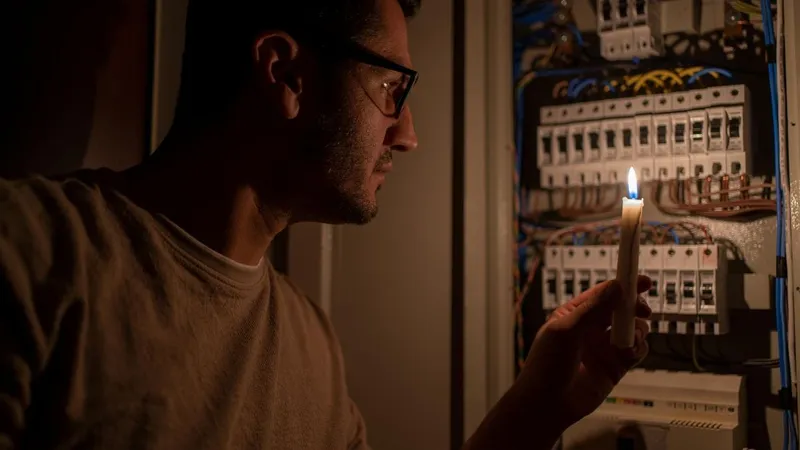MADRID — A massive power outage plunged swaths of Spain and Portugal into darkness on April 28, grinding cities to a halt and leaving millions scrambling. From Lisbon’s bustling streets to Barcelona’s vibrant plazas, the lights went out, traffic signals died, and mobile networks flickered like a candle in a storm. Authorities are racing to pinpoint the cause, but answers remain scarce.
The blackout hit hard and fast. In Spain, the state-owned grid operator confirmed the failure cascaded across multiple regions, knocking out power to Madrid, Catalonia, Andalusia, and beyond. Portugal’s national energy company reported similar chaos, with Lisbon, Porto, and the Algarve region plunged into black. France’s southern border areas also took a hit, though less severe. Hospitals switched to backup generators, but reports flooded in of people trapped in elevators, trains stalled on tracks, and businesses shuttered mid-day.
Spain’s energy ministry issued a brief statement acknowledging the “significant disruption” and promised restoration efforts were underway. Portugal’s government echoed the sentiment, urging calm while technicians worked round-the-clock. Neither offered a timeline or a cause. Some grid insiders pointed to a possible failure in a key transmission line, but official lips stayed sealed.
Airports weren’t spared. Madrid-Barajas, one of Europe’s busiest hubs, ground to a standstill, with flights delayed or diverted. Runway lights went dark, and passengers camped out in terminals lit only by emergency bulbs. Lisbon’s Humberto Delgado Airport faced similar woes, stranding travelers and snarling cargo operations.
The economic toll is already stinging. Spain’s commerce ministry estimated losses in the tens of millions, with small businesses hit hardest. In Porto, shopkeepers stood outside darkened stores, unable to process card payments. “It’s like the world stopped,” one grocer said, shaking his head.
Restoration crept along unevenly. By evening, patches of Madrid and Lisbon flickered back to life, but rural areas remained pitch-black. Portugal’s energy authority reported 60% of its grid back online, while Spain lagged at 45%. France, less affected, largely recovered by midday.
No official word on cyberattack or sabotage, though both governments ruled out weather as a factor—no storms, no floods, just clear April skies. The European Union’s energy commission announced it’s monitoring the situation, ready to assist if cross-border grids buckle further.
The blackout’s scale is staggering: over 20 million people affected across the Iberian Peninsula, with ripple effects into France. Emergency services are stretched thin, and both capitals deployed extra police to manage traffic chaos and prevent looting. For now, residents are left waiting, some firing up old generators, others just staring at dead phone screens.

